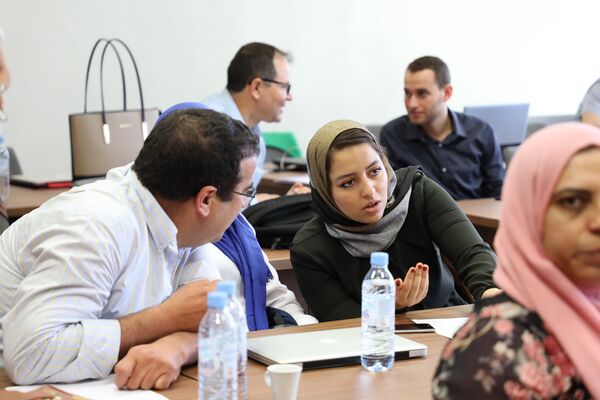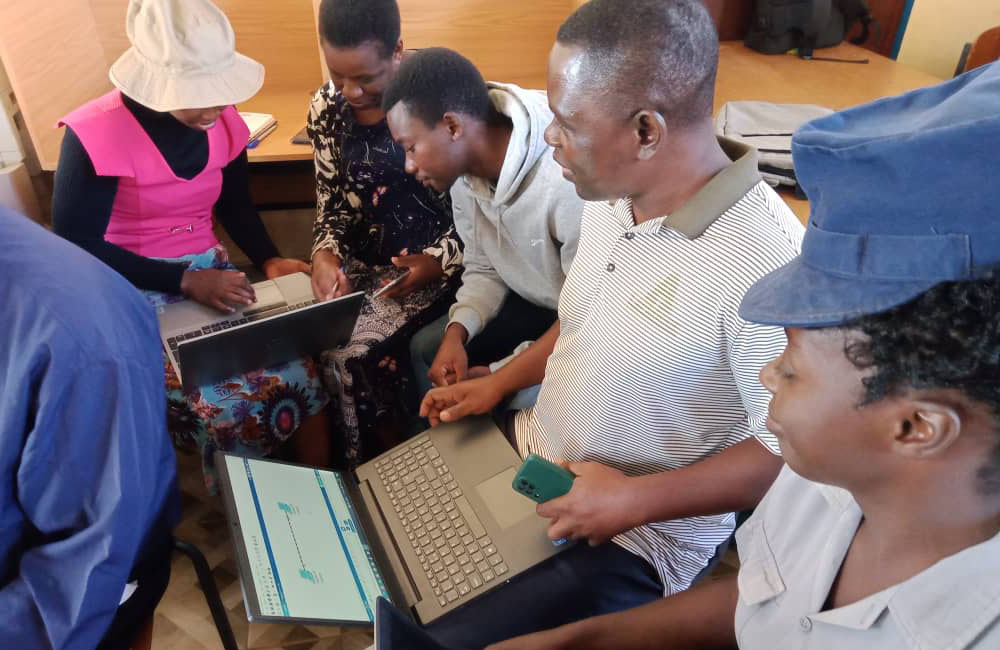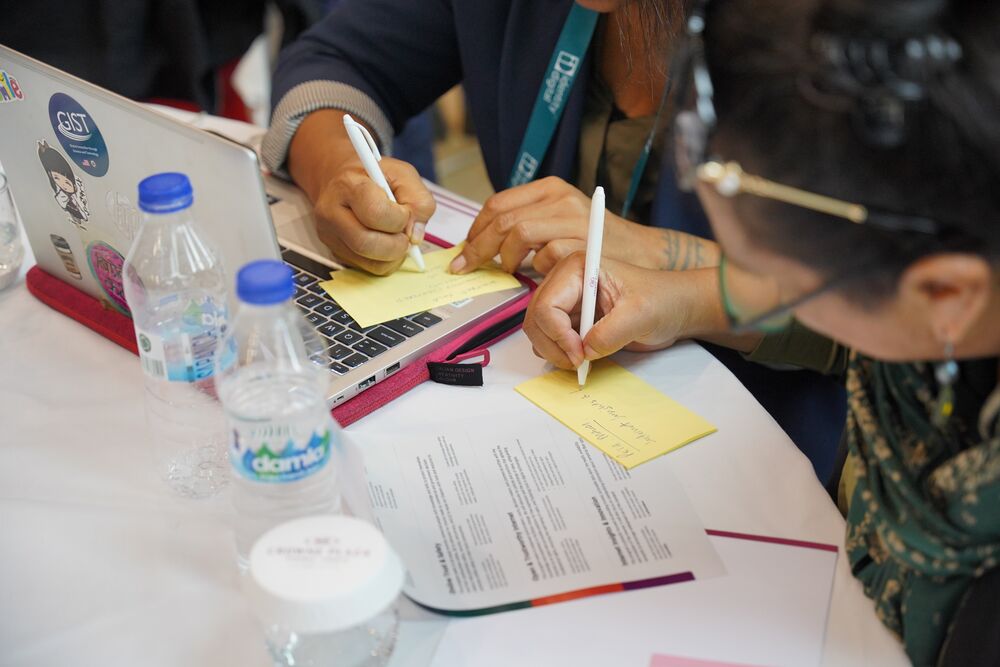Promoting
Internet
Governance
How the Internet is governed directly impacts our daily lives, now and far into the future.
Internet governance refers to how the Internet is managed. The way in which the Internet is governed impacts how we use it and how it evolves. The Internet’s success is rooted in how it was built and able to grow: as an open platform for innovation and sharing ideas. This openness has defined the Internet from the start and enabled it to become a strong tool for positive change.
But sometimes, proposed policies and regulations oppose the open nature of the Internet, whether they intend to or not. This puts everything we know and love about the Internet at risk.
The Multistakeholder Approach: What Is It and Why Is It Important?
The Internet is open, interconnected, and doesn’t recognize borders—it’s meant to connect us all, no matter where we live. The multistakeholder approach involves all interested actors participating in inclusive, consensus-driven processes that have given us the global Internet we all know and love.
The multistakeholder governance model could be thought of as a music concert where no part involved (organizers, technicians, stage managers, or performers) controls everything: someone is making sure the venue is available and in adequate condition, someone else is designing the stage, the lighting, and sound, other people are building the stage, setting up the gear to allow other to operate it, the instruments need to be tuned, someone communicates to the public and sell the tickets, the audience shows up to listen to it and musicians play.
Advocating for a multistakeholder approach doesn’t mean excluding any stakeholder; it means ensuring all stakeholders collaborate with each other. While governments have a crucial role in UN-led processes, lasting and effective Internet governance and digital development decisions come from inclusive discussions where the technical community, private sector, civil society, and academia also have a voice.
Relevant Documents
Footprints of 20 Years of the Internet Governance Forum
For two decades, the Internet Governance Forum has enabled open, inclusive, and informed discussions that influence how global Internet policy is shaped and implemented. Learn more about the IGF’s concrete impact in our joint report with ICANN.
A Pivotal Moment for Global Digital Cooperation
This year is the 20th anniversary of the World Summit on the Information Society (WSIS). In this time, the Internet has evolved beyond our imagination, having a positive impact on the world. We believe the best way to navigate today’s challenges is to build upon the success of the WSIS framework. Take a deep dive into our analysis and recommendations for the WSIS+20 review.
If you want to do a deep dive into multistakeholderism, view our Internet governance resources.

Relevant Internet Governance Processes and Events
We bring the voice of the Internet to UN and non-UN processes.
Internet policy issues are debated in local, regional, and global events and processes. Some are led by the United Nations, others by different organizations. These meetings include relevant actors—everyday Internet users, businesses, and governments—in their conversations, allowing a more inclusive flow of ideas and perspectives to help determine what is best for the Internet and its users. But sometimes, whether they intend it or not, decisions made by multilateral organisms, like the UN, with limited participation from non-governmental actors can negatively impact the Internet.
The Internet Society will strengthen its position as a trusted expert partner from the technical community to ground decisions in the realities of how the Internet works. Together with our community, we will be the voice of the Internet to prevent top-down decisions from undermining it.
World Summit on the Information Society (WSIS+20) Review
A United Nations driven process set to determine the effectiveness of the actions taken to use Information and Communications Technologies since 2005.
Internet Governance Forum (IGF)
The Internet Governance Forum (IGF) serves as a global multistakeholder platform dedicated to facilitating discussions on public policy matters pertaining to Internet governance. It provides an open forum for engaging in dialogue among governments, civil society, the private sector, the technical community, and international organizations.
Global Digital Compact
The Global Digital Compact (GDC) is a proposed United Nations framework for global governance of digital technology. Its objective is to establish shared principles and guidelines for an open, safe, and inclusive digital future.
WSIS High-Level Event (HLE)
A global meeting co-organized by the International Telecommunication Union (ITU) and other UN agencies to review progress on the World Summit on the Information Society (WSIS) action lines.
WTDC-25
The World Telecommunication Development Conference (WTDC) is a key event organized by ITU to shape global strategies for digital development and connectivity, that convenes every four years.
WTPF-26
The World Telecommunication/ICT Policy Forum (WTPF) serves as a high-level global platform convened by the International Telecommunications Union (ITU) to facilitate discussions on emerging challenges arising from technological advancements and the evolving telecommunication landscape.
Commission on Science and Technology for Development (CSTD)
The Commission on Science and Technology for Development (CSTD) is a subsidiary body of the United Nations Economic and Social Council (ECOSOC). It serves as the main advisory body within the UN system on science, technology, and innovation (STI) for development.
NETMundial+10
The NETMundial+10 meeting marked the tenth anniversary of the first and only Global Multistakeholder Meeting on The Future of Internet Governance (NETmundial), a global event that happened in Brazil in 2014 to discuss the evolution of Internet Governance.
Get Involved



News and Updates
Image copyright:
© Frederic Courbet/Panos Pictures, © Urban Pixel Lebanon, © Internet Society, © Randy Berghout, © Berke Aksoz